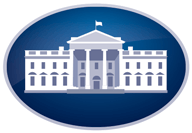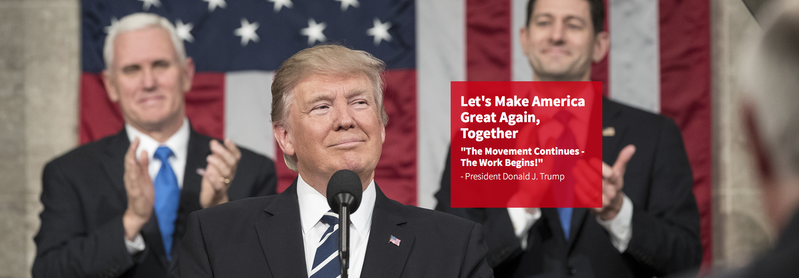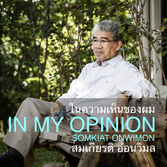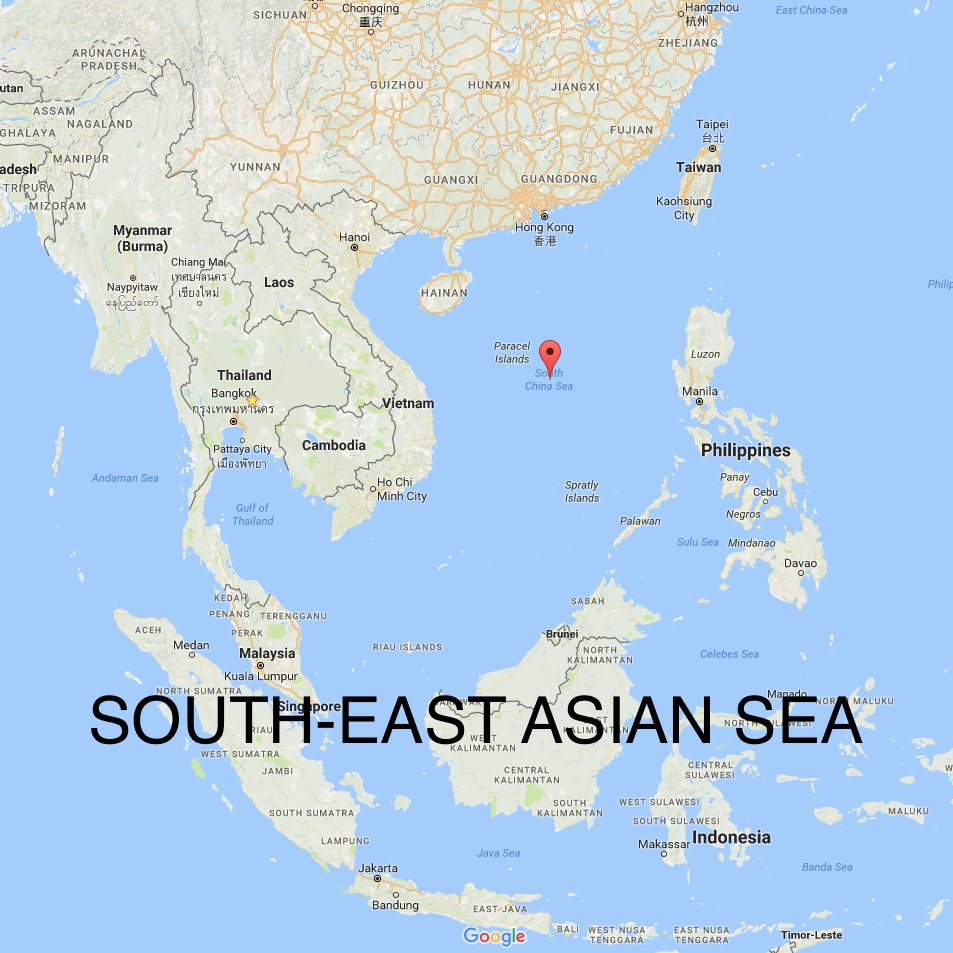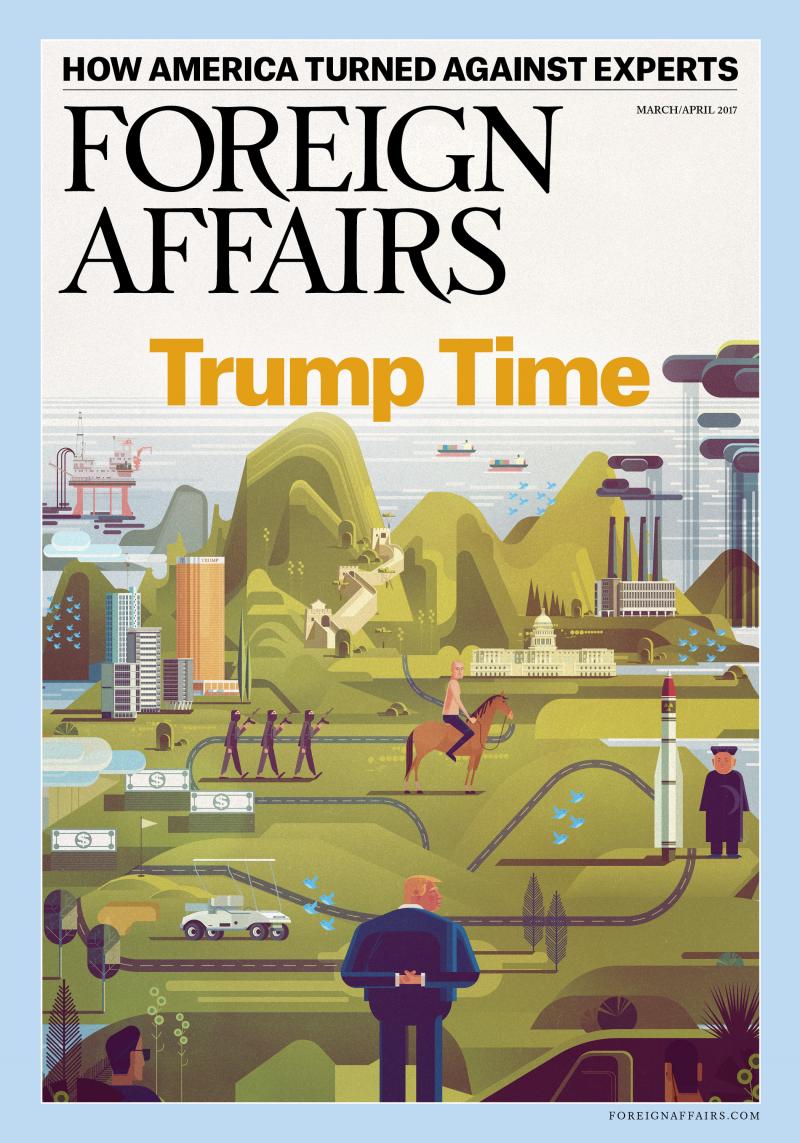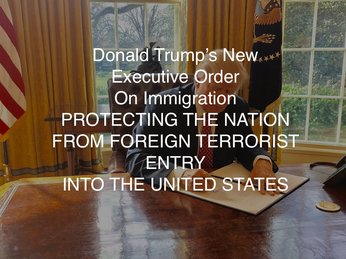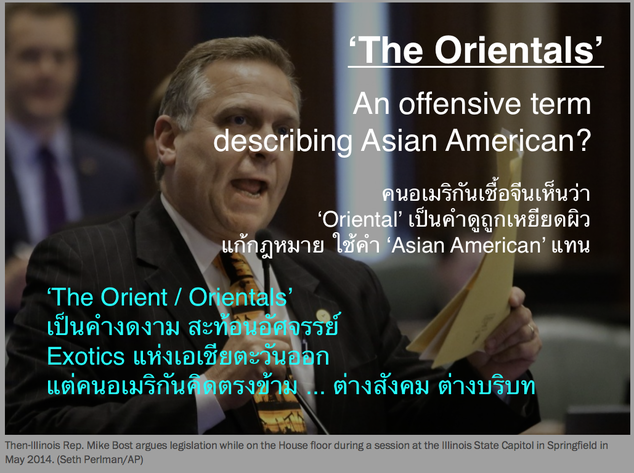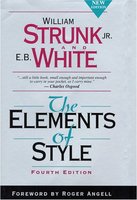|
Speeches and Remarks
March 17, 2017 Joint Press Conference with President Trump and German Chancellor MerkelMarch 17, 2017 Remarks by President Trump in Roundtable Discussion on Vocational Training with U.S. and German Business Leaders 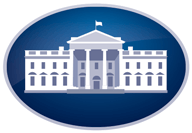
The White House
Office of the Press Secretary For Immediate Release March 17, 2017 Joint Press Conference with President Trump and German Chancellor Merkel East Room 2:09 P.M. EDT PRESIDENT TRUMP: Thank you very much. Chancellor Merkel, it is a great honor to welcome you to the People’s House, the White House. Our two nations share much in common, including our desire for security, prosperity and peace. We just concluded a productive meeting with the German and American companies to discuss workforce development and vocational training -- very important words. Germany has done an incredible job training the employees and future employees, and employing its manufacturing and industrial workforce. It’s crucial that we provide our American workers with a really great employment outlook, and that includes making sure that we harness the full potential of women in our economy. My administration is in the process of rebuilding the American industrial base. A stronger America is in the interests, believe me, of the world as a whole. I reiterated to Chancellor Merkel my strong support for NATO, as well as the need for our NATO allies to pay their fair share for the cost of defense. Many nations owe vast sums of money from past years, and it is very unfair to the United States. These nations must pay what they owe. During our meeting, I thanked Chancellor Merkel for the German government’s commitment to increase defense spending and work toward contributing at least 2 percent of GDP. I want to thank the Chancellor for her leadership in supporting NATO and its efforts in Afghanistan. This has come at significant cost, including the lives of over 50 German soldiers, whose sacrifice we greatly honor. I also appreciate Chancellor Merkel’s leadership, along with the French President, to resolve the conflict in Ukraine, where we ideally seek a peaceful solution. Most importantly, our two countries must continue to work together to protect our people from radical Islamic terrorism and to defeat ISIS. I applaud Chancellor Merkel for Germany’s contributions, both civilian and military, as a counter-ISIS coalition member. We also recognize that immigration security is national security. We must protect our citizens from those who seek to spread terrorism, extremism and violence inside our borders. Immigration is a privilege, not a right, and the safety of our citizens must always come first, without question. Over lunch, the Chancellor and I will talk about our economic partnership. We must work together towards fair and reciprocal trade policies that benefit both of our peoples. Millions of hardworking U.S. citizens have been left behind by international commerce, and together, we can shape a future where all of our citizens have a path to financial security. The United States will respect historic institutions, and we will also recognize the right of free people to manage their own destiny. The close friendship between America and Germany is built on our shared value. We cherish individual rights, we uphold the rule of law, and we seek peace among nations. Our alliance is a symbol of strength and cooperation to the world. It is the foundation of a very, very hopeful future. Thank you. CHANCELLOR MERKEL: (As interpreted.) Mr. President, ladies and gentlemen, it is a great pleasure and privilege to be here today in the White House, together with President Donald Trump, and have a first personal, one-on-one meeting and an exchange of views. In the period leading up to this visit, I’ve always said it’s much, much better to talk to one another and not about one another, and I think our conversation proved this. We talked about the international situation. We talked about also apprenticeship programs when we met with CEOs and apprentices around a roundtable, as regards the shared interests that we have. Let me look back into the past. We, the Germans, owe a lot to the United States of America, particularly as regards the economic rise of Germany. This was primarily due to the help through the Marshall Plan. We were also able to regain German unity after decades of the United States standing up for this, together with other allies, and standing by our side during the period of the Cold War. And we are very gratified to know that today we can live in peace and freedom as a unified country due to that. I was gratified to know that the President had aligned how important he thinks NATO is. NATO is of prime importance for us, and it was not without very good reason that we said during our summit meeting in Wales that also Germany needs to increase expenditure. We committed to this 2-percent goal until 2024. Last year we increased our defense spending by 8 percent, and we’re going to work together again and again on this. And we said that, obviously, defense and security has a lot of different assets and facets to it. One the one hand, it’s supporting missions in Africa, for example. It’s also promoting development assistance, but it’s also helping mission in Africa, for example, in trying to stand up for their own safety and security. We continue to be in conversation. What was important for us today was that we were able to talk about Afghanistan, talk about, as the President quite rightly said, the continuing mission of Germany in Afghanistan. I am very glad that the United States are intending to continue to commit to the Afghan mission as well. Together, we fight against Islamist terrorism. Germany is going to step up its work and is going to continue its work in Afghanistan and also in Syria. We’re going to monitor the situation there very closely. We’re going to work on political solutions in Syria, but also in Libya -- what we talked about. I am very gratified to know that the American administration and also the President, personally, commits himself to the Minsk process. We need to come to a solution of this problem. There has to be a safe and secure solution for Ukraine, but the relationship with Russia has to be improved, as well, once the situation there on the ground is clarified. Minsk is a good basis, but, unfortunately, we haven’t made yet the headway that we want to. But we are going to work together with our experts in the next few months to come on this issue. I am also here in my capacity as G20 president. You know that we will be hosting the G20 visit -- the G20 Summit -- sorry -- this year, and I’m very pleased that the President has committed to attending this summit. We’re going to talk at some length over lunch about the issues. We say trade has to be rendered fairer, there has to be a win-win situation. We can talk about the details of that. We’ve already seen today when we had an exchange with our CEOs and also with our apprentices what sort of potential we can tap, what sort our potential our two economies have. It’s very moving to see, particularly meeting with these young people, what sort of work towards the future is being done by our companies there. So, particularly in this period where we are transiting from traditional manufacturing to industry -- capacity-building skills are so important, incidentally, not only for young people, but also for those who maybe have lost their jobs and need to be reskilled in order to find a job again. And that is an issue I know is very important for you here in the United States, but it’s also important for us in Germany. So I can say there are a number of issues where we will continue to cooperate very closely on the level of our experts, but also on our level. We had a very good first exchange of views, so I’m very much looking forward to the talks we will have over lunch. Thank you. PRESIDENT TRUMP: Thank you very much. We’ll do a couple of questions. Mark Halperin. Q Mr. President, thank you. A lot of Americans have anxiety, like eight years ago, regarding (inaudible) healthcare. So I'm wondering if you can tell people what your bottom lines are (inaudible.) INTERPRETOR: The gentleman needs to use a microphone. Q Chancellor Merkel, President Trump has got a different style than most recent, past U.S. Presidents. I'm wondering what you think of that style, if you think it's good for the world or do you have reservations (inaudible.) PRESIDENT TRUMP: Thank you, Mark. We just have a really wonderful group of people meeting later. We met with 12 pretty much “no’s” in Congress -- you saw that a little while ago -- and they went from all “no’s” to all “yeses” and we have a lot of “yeses” coming in. It's all coming together. We're going to have great healthcare. It's going to be passed, I believe, I think substantially, pretty quickly. It's coming together beautifully. You have conservative groups, you have other groups. Everybody wants certain things. In the end, we're going to have a great healthcare plan. Now, I have to tell you that Obamacare is a disaster. It's failing. I was in Tennessee -- we had a tremendous crowd the other night, and they have -- half of the state is uncovered. The insurance companies have left, and the other half has one insurance company and that will probably be bailing out pretty soon also. They’ll have nobody. You have many states where they have one. You have a lot of places now where they’ll have none. Obamacare will fail. It will fold. It will close up very, very soon if something isn't done. I've often said politically, the best thing I can do is absolutely nothing. Wait one year and then even the Democrats will come say, please, please, you got to help us. But it's not the right thing to do for the people. We have a great plan. We have a plan that’s getting more and more popular with the Republican base, with the conservative base, and with people, generally. The press has covered it very inaccurately. People are truly covered well, and I think it's going to be something that's going to be a model to be looked upon. Q (Inaudible.) PRESIDENT TRUMP: I'll tell you after we're finished. (Laughter.) CHANCELLOR MERKEL: (As interpreted.) Thank you very much. Well, I'm here as Chancellor of the Federal Republic of Germany. I represent German interests. I speak with the President of the United States, who stands up for, as is right, American interests. That is our task, respectively. And I must say that I was very gratified to know the very warm and gracious hospitality with which I have been received here. We held a conversation where we were trying to address also those areas where we disagree, but to try to bring people together, try to show what is our vantage point, what is the American vantage point, and then try to find a compromise which is good for both sides. Because we need to be fair with each other. Each and every one is expecting for his or her leader that something good comes out of it for their own people. For Germany, I can say, well, people are different. People have different abilities, have different traits of character, have different origins, have found their way into politics along different pathways. All that is diversity, which is good. Sometimes it's difficult to find compromises, but that's what we've been elected for. If everything just went like that and without problem, we wouldn't need politicians to do these jobs. Q -- from the German Press Agency. Madam Chancellor, given the experience of the GDR, you are always saying that you are so confident that walls can fall also. How dangerous do you think this isolationist policy of the U.S. President is? What was the import of terrorists that he plans? And also, with the fact that he doesn’t think that the EU -- doesn’t deal with the EU in a very respectful way? And then, Mr. President, America First -- don't you think that this is going to weaken also the European Union? And why are you so scared of diversity? In the news and in the media, you speak so awful of fake news and that things, also, cannot be proven. For example, the fact that you have been wiretapped by Mr. Obama. PRESIDENT TRUMP: Nice, friendly reporter. (Laughter.) First of all, I don't believe in an isolationist policy, but I also believe a policy of trade should be a fair policy. And the United States has been treated very, very unfairly by many countries over the years. And that's going to stop. But I'm not an isolationist. I'm a free trader, but I'm also a fair trader. And free trade has led to a lot of bad things happening -- you look at the deficits that we have and you look at all of the accumulation of debt. We're a very powerful company -- country. We're a very strong, very strong country. We'll soon be at a level that we perhaps have never been before. Our military is going to be strengthened -- it's been depleted. But I am a trader. I am a fair trader. I am a trader that wants to see good for everybody, worldwide. But I am not an isolationist by any stretch of the imagination. So I don't know what newspaper you're reading, but I guess that would be another example of, as you say, fake news. CHANCELLOR MERKEL: (As interpreted.) Well, allow me, if I may, to project in the following terms. We haven't yet had time to talk at great length about economic issues, but I would say that the success of Germany in the economic area, but also on security and peace -- that the success of Germans have always been one where the German success is one side of the coin, and the other side of the coin has been European unity and European integration. That's something of which I'm deeply convinced. And I'm not only saying this back home, I'm saying this here. I'm saying it in the United States and also here in Washington in my talks with the President. Secondly, I believe that globalization ought to be shaped in an open-minded way, but also in a very fair way. Freedom of movement within the European Union, for example, is a very important element of our economic progress, of peace; has been for many, many decades. The European countries for many, many centuries waged wars against each other. We have to protect our external borders because -- and there we have to work on the basis of mutual interests with our neighbors. Migration, immigration, integration has to be worked on, obviously. Traffickers have to be stopped. But this has to be done while looking at the refugees as well, giving them opportunities to shape their own lives where they are; help countries who right now are not in an ability to do so -- sometimes because they have civil war. I think that’s the right way of going about it. And this is obviously what we have an exchange of views about, but my position is the one that I have just set out for you. PRESIDENT TRUMP: I might add that we have many plants and factories coming back into the United States. Many jobs are coming back to Michigan, to Ohio, to Pennsylvania, to a lot of places where they were losing jobs. And we will have a different policy, but it’s going to be a great policy for not only the United States but a great policy worldwide, and I look very much forward to it. Kevin Cirilli. Q Yes, Mr. President, (inaudible) healthcare -- what exactly does the (inaudible)? And then, for Chancellor Merkel, what do you anticipate could be a concession you would be willing to give to the administration (inaudible)? PRESIDENT TRUMP: Well, Kevin, I think we have a very unified Republican Party. After all, we have the presidency, we have the House, we have the Senate. And we’re getting along very well, I will tell you. And if you were at the meeting that I just attended where we took 12 “no’s” or semi-“no’s” -- no “yeses” -- and within a short period of time, everybody was very much on board, and a commitment to vote yes. I think we have a very unified party. I think we're actually more unified than even the election. You see -- when they talk about me, I seem to be very popular, at least this week, within the party because we have our highest numbers -- the highest numbers that I’ve ever had in the party. So I think there’s a great unification. Now, healthcare is a very, very difficult subject, it’s a very complex subject, and it’s a subject that goes both ways. You do something for one side and the other side doesn’t like it. But it’s really something that’s come together very well, and I think it’s going to be very, very popular -- extremely popular. On trade with Germany, I think we’re going to do fantastically well. Right now, I would say that the negotiators for Germany have done a far better job than the negotiators for the United States. But hopefully we can even it out. We don’t want victory, we want fairness. All I want is fairness. Germany has done very well in its trade deals with the United States, and I give them credit for it, but -- and I can speak to many other countries. I mean, you look at China, you look at virtually any country that we do business with. It’s not exactly what you call good for our workers. You look at the horrible NAFTA transaction -- NAFTA has been a disaster for the United States. It’s been a disaster for companies, and in particular, it’s been a disaster for the workers. A lot of the companies just moved, but the workers are screwed. And it’s probably the reason I’m standing here, maybe number one -- that and maybe the military -- building up our military, which we will do, and we will be stronger than ever before -- and hopefully not have to use it. But we will be stronger, and perhaps far stronger than ever before. But it’s probably the reason I’m here, is when you talk about trade. So I think that we are going to be a very different country. I think we’re going to be -- we’re going to have great values. But in terms of our military, it’s going to be much stronger. And our trade deals are going to be good, solid deals. Not deals that lead to closing plants and tremendous unemployment. Okay? Thank you. CHANCELLOR MERKEL: (As interpreted.) When we speak about trade agreements, and the European Union is negotiating those agreements for all of the member states of the European Union, but obviously there’s also input by the member states -- they bring to the table what’s important to them. We have underlined as a German industry, German business community, and have made the experience that any kind of agreement that we have concluded -- for example, at the very latest with South Korea -- brought us more jobs, actually. People were very much concerned about losing jobs -- for example, the automotive industry -- but in the end, it turned out -- particularly as it regards South Korea -- in the end it turned out that both sides benefitted. And I think it’s only fair. That’s the purpose of concluding agreements -- that both sides win. And that is the sort of spirit, I think, in which we ought to be guided in negotiating any agreement between the United States of America and the EU. I hope that we can resume the agreement that we started. We have just now concluded our agreement with Canada, and I hope that we will come back to the table and talk about the agreement between EU and the U.S. again. Q Madam Chancellor, a question addressed to you. Today we're talking about trade. The President, in the past, always said that he doesn’t like multinational trade agreements but he does bilateral trade agreements. Do you think from the EU’s point of view, T-TIP is a bilateral agreement with Washington on one side, the EU the other side? Now, is the problem that America, the President of the United States, and the Europeans have a basically different understanding of what the EU is all about? That’s my question addressed to you. And Mr. President, my question addressed to you, if I may -- rejected White House claims, is that the alleged wiretapping on you, on the Trump Tower, on Trump organization, or on members of your campaign was -- that British intelligence was either responsible for it or involved in it? After these claims are rejected, what is your take on that? Are there other suspects, or do you think it was a mistake to blame British intelligence for this. And by the way, my second question, are there, from time to time, tweets that you regret in hindsight -- PRESIDENT TRUMP: Very seldom. Q Very seldom. So you never would have wished not to have -- PRESIDENT TRUMP: Very seldom. Probably wouldn’t be here right now -- but very seldom. We have a tremendous group of people that listen, and I can get around the media when the media doesn’t tell the truth, so I like that. As far as wiretapping, I guess, by this past administration, at least we have something in common perhaps. (Laughter.) And just to finish your question, we said nothing. All we did was quote a certain very talented legal mind who was the one responsible for saying that on television. I didn’t make an opinion on it. That was a statement made by a very talented lawyer on Fox. And so you shouldn’t be talking to me, you should be talking to Fox, okay? Q Thank you. CHANCELLOR MERKEL: (As interpreted.) Well, I believe that the President has clearly set out his philosophy as to what trade agreements have to bring about for the American side as well. I personally don’t think that Germany needs to negotiate and not the European Union. We’ve devolved our competences to the European Union, so the European Union, or rather the Commission negotiates on behalf of the member states, so that’s not going to prevent us from concluding agreements. Indeed, this would be then qualify as a bilateral agreement between the EU and the United States if we had it. But the question is, will it be of benefit to both countries or not, and let me be very honest, very candid -- a free trade agreement with the United States of America has not always been all that popular in Germany either. There have been less demonstrations against this free trade agreements in the United States that in Europe, and also in Germany. So I am very glad to note that apparently the perspective on that has changed a little bit at least in Germany, too. PRESIDENT TRUMP: Thank you very much. Great honor. Thank you. Thank you. END 2:36 P.M. EDT The Fix
Analysis Sean Spicer’s angry, lonely defense of Trump’s wiretapping claim, annotated By Aaron Blake March 16 at 5:31 PM Spicer: Trump ‘stands by’ wiretapping allegationsEmbed Share White House press secretary Sean Spicer on March 16 said President Trump “stands by” allegations he made that President Barack Obama ordered a wiretap on him in 2016. Trump has provided no evidence for the claims. (Reuters)Things got very contentious in the White House briefing room Thursday afternoon, as press secretary Sean Spicer was confronted with the bipartisan doubts of congressional leaders about Trump's claims that then-President Obama wiretapped him. At one point, Spicer spent several minutes reading through a list of reports that he felt bolstered Trump's claim. Journalists, meanwhile, pushed back on the evidence Spicer provided -- none of which addressed Trump's central claim that Obama was behind the alleged surveillance of Trump Tower, and some of which came from dubious and/or ideologically tinged sources like Sean Hannity. Below is the transcript, with our annotations. To see an annotation, click on the yellow, highlighted text. We'll pick things up right after OMB Director Mick Mulvaney appeared to talk over the budget. SPICER: Jonathan Karl? QUESTION: So, Sean, the day before yesterday, you said you were extremely confident that the House and Senate Intelligence Committees would ultimately vindicate the president's allegation that Trump Tower was wiretapped. As I'm sure you have now seen, the Senate Intelligence Committee has said they see no indications Trump Tower was the subject of surveillance. That seems to be a pretty blanket statement. What's your reaction? SPICER: Well, I think there are several things, I would also -- it's -- its interesting to me that you know, just as a -- as a point of interest that when -- when one entity says one thing that -- that proves, that claims one thing, you guys cover it ad nauseam. When Devin Nunes came out and said I think it's very possible, yesterday, there was crickets from you guys. When Devin Nunes came out and said there was no connection that he saw to Russia, crickets. When Tom Cotton said the same, you don't wanna cover this stuff -- no, no, hold on... (CROSSTALK) QUESTION: ...on no evidence... (CROSSTALK) SPICER: No, actually... (CROSSTALK) QUESTION: ...now you've had the House Intelligence Committee and the Senate Intelligence Committee... (CROSSTALK) SPICER: No, no, actually here's his quote, Jonathan, no here's the direct quote, "I think it's very possible," end quote. That's what he said when he said the president's communications could've been swept up in collection. So again, I... QUESTION: He said there was no -- I saw no indication of a wire tap... (CROSSTALK) SPICER: I understand that and I think -- and I think the president's been very clear when talks about this, and he talked about it last night. So we talked about wire tapping, he meant surveillance and that there have been incidents that have occurred. Devin Nunes couldn't have stated it more beautifully. But you choose not to cover that part. You chose not to cover when Tom Cotton went out, when Richard Burr went out, when others, Chairman Nunes and others and said that there was no -- hold on... (CROSSTALK) QUESTION: ...Intelligence Committee take... (CROSSTALK) SPICER: Yeah I -- no, I understand that, Jonathan. And where was your passion and where was your concern when they all said that there was no -- no connection to Russia? Where was it then? You -- crickets, from you guys, because at the end of the day, when -- no, no, no, no, no, hold on, hold on, I'm -- hold on, hold on... (CROSSTALK) QUESTION: ...tower? SPICER: I'm making a point. The point is this, number one, that its interesting how when evidence comes out and people who have been briefed on the Russia connection come out and say that there was nothing that they have seen that proves a connection, you choose not to cover that, you don't stop the narrative. You continue to perpetuate a false narrative. When he came out yesterday and said quote, "I see no evidence that this happened." When he said quote, "I think it's very possible," like I said, we should know (ph) -- you don't cover that part. You only cover the part -- but let's go through what we do know, OK? Hold on, hold on, let me -- and I'm trying to answer your question, Jonathan, if you can calm down. If you look at (inaudible) on January 20 -- 12th, 2017, they said quote, "In its final days, the Obama administration has expanded the power of the National Security Agency to share globally intercepted personal communications with the government's 16 other intelligence agencies before applying privacy protections. The new rules significantly relax long-standing limits on what the NSA may do with the information gathered by its most powerful surveillance operation which are largely unregulated by wire tapping laws." When Sarah Carter reported that by the start of the New Year, brought with it unexpected politicizing of the intelligence gathered in secret. Separately, the Obama administration amended a long standing executive order, allowing information intercepted through FISA warrants or by the National Security Agency to be shared by a wider audience and 16 government agencies as Obama was leaving offices. Intelligence normally reserved for just a handful of intelligence leaders was spread throughout briefings, of -- to scores of workers and soon, leaks began appearing in news media organizations, often in stories lacking context of how national security investigations are actually concluded. On March 3rd, Fox News Chief Anchor Bret Baier said the following, quote, "There was a report in June 2016, a FISA request by the Obama administration forwarding intelligence surveillance court to monitor communications involving Donald Trump and several other campaign officials. Then they got turned down, then in October, then they renewed it into a start up wire tap at Trump Tower with some computer and Russian banks." Baier continues, "A June FISA request that foreign intelligence surveillance courts get shot down. A judge says," -- hold, Jonathan, I'm gonna -- you can ask, you can follow-up. "A judge says no go to monitoring Trump Tower, they go back in October, they do get a FISA granted. This is wire tap going on in a monitoring of computers that has some ties they believe to Russian counts. By all accounts, they don't come up with anything in the investigation, but the investigation continues and we don't know it." On November 11th, 2016, days after the election, Heat Street reported, quote, "Two separate sources with links to the counter intelligence community had confirmed to Heat Street that the FBI saw and was granted a FISA warrant in October, giving counter surveillance intelligence permission to examine the activities of U.S. persons and Donald Trump's campaign with ties to Russia. The first requests which sources say named Trump was denied back in June. But the second was drawn more narrowly and granted in October after evidence was presented of a server, possibly related to the Trump campaign and its alleged links to two banks, SVB Bank and Russia's Alfa Bank. Sources suggest, that a FISA warrant was granted to look at the full context of related documents that concern U.S. person. Two separate sources with links to the counter intelligence community have confirmed that the FBI saw it and was granted a FISA warrant in October, giving counter intelligence permission to examine the activity of U.S. persons and Donald Trump's campaign with ties to Russia." They go on: "The FISA warrant was granted in connection with the investigation of suspected activities, between the server and two banks. However, it is thought that the intelligence community that the warrant covers any U.S. person connected to this U.N. investigation. And thus covers Donald Trump and at least three further men, who have either formed part of his campaign or acted as immediate surrogates." On January 19th, the New York Times reported the following, "American law enforcement and intelligence agencies are examining intercepted communication and financial transactions as part of a broad investigation into possible leaks between Russian officials and associates of president-elect Donald J. Trump. One official said, "Intelligence reports based on some of the wiretapped communications have been provided to the White House. It is unclear what Russian official is under investigation or what particular conversations caught the attention of American eavesdroppers. The legal standard for opening these investigation is low." Andy McCarthy, writing in National Review suggested quote, "From three reports from The Guardian, Heat Street and the New York Times, it appears the FBI has concerns about a private server in Trump Tower that was connected to one or two Russian banks." Heat Street describes these concerns as centering on quote "possible financial -- and banking offenses." I -- this is his quote -- "I italicized the word offenses because it's denotes crimes. Ordinarily when crimes are suspected, there is a criminal investigation, not a national security investigation." We go on. Sara Carter from the Circa reporting intelligence professionals tell Circa Newsthey were concerned that some of the Russian intelligence was spread through group briefings to a much larger than usual audience back in January. This would have happened during the final days of the Obama Administration, when it expanded Executive Order 12333, which allows and plays with a quote "need to know" and further unfettered access to broad data stowed by the NSA. The new rules allow the NSA to share -- quote -- "raw signals intelligence information, including the names of those involved in phone conversations and e-mails. The expansion of the order makes it difficult to narrow on the leaks and, frankly, it allows too many people access to the raw data, which only used to be available to a select few," said a U.S. official who spoke on the condition of anonymity and was not granted to be speak on the authority. Numerous outlets including the New York Times have reported on the FBI investigation into Mr. Trump's advisers, BBC and Lynn McCarthy (ph) revealed the existence of a multi-agency working group to coordinate investigations across the thing. On February 14th, the New York Times again refers to phone records and intercepted calls -- let me quote them, "American law enforcement intelligence agency intercepted the communications around the same time they were discovering the evidence that Russia was trying to disrupt the presidential election by hacking into the Democratic National Committee," three officials said, "The intelligence Russia -- the intelligence agencies then thought to learn whether the Trump campaign was colluding with the Russians on hacking or on other efforts to influence the election." The officials interviewed in recent weeks said that so far, they've seen no evidence of such cooperation. The official said that the intercepted communications were not limited to Trump campaign officials and other associates of Mr. Trump. The call logs and intercepted communications are part of a larger trove of information that the FBI is sifting through. Days later, the New York Times then reports, quote "In the Obama administration's last days, some White House officials scrambled to spread information about Russian efforts to undermine the presidential election of Donald Trump, connections between the president-elect and Russians across the government." But the increasingly hard to escape conclusion that in our government that -- individuals in our government were instead trying to undermine the new president by saying quote -- this is the New York Times again -- "At intelligence agencies, there was a push to process as much raw intelligence into possible analysis to keep the report at relatively low classification levels, to ensure a widespread leadership across the government." And in some cases -- quote -- "among them European allies. This allowed the upload of as much information -- intelligence that was possible to Intellipedia, a secret wiki used by American analysis to share information." Sean Hannity went on Fox to say, quote, "But protections which are known as minimization procedures have been put in place to protect Americans that are not under warrant," American citizens that are caught up in the surveillance. And quote, "By the way, their identities are protected. Their constitutional rights -- are to be protected. Now of course, this was not the case with Lieutenant General Flynn, because we know a transcript of this call was created and then given to intelligence officials, who then leaked this information, which is a felony, to the press that printed it," end quote. Last on Fox News, on March 14th, Judge Andrew Napolitano made the following statement, quote, "Three intelligence sources have informed Fox News that President Obama went outside the chain of command. He didn't use the NSA, he didn't use the CIA, he didn't use the FBI and he didn't use the Department of Justice. He used GCHQ. What is that? It's the initials for the British intelligence finding agency. So, simply by having two people saying to them president needs transcripts of conversations involving candidate Trump's conversations, involving president-elect Trump, he's able to get it and there's no American fingerprints on this. Putting the published accounts and common-sense together, this leads to a lot." QUESTION: So Sean, are you saying... SPICER: So, John... QUESTION: ...that despite the findings, the bipartisan findings of the Senate Intelligence Committee -- SPICER: No, they're not findings. They're two -- there's a statement out today. They have not begun this. As you know, yesterday or two days ago, the Department of Justice asked for an additional week. So they -- the statement clearly says that at this time, that they don't believe that. They have yet to go through the information. The Department of Justice, as you know, has not supplied this. But I just read off to you -- it's interesting. When the New York Times reports... (CROSSTALK) SPICER: Hold on, hold on. (CROSSTALK) QUESTION: ... that whole long answer... SPICER: Thank you. Appreciate it. QUESTION: OK. So, are you saying that the president still stands by his allegation that President Obama ordered wiretapping or surveillance of Trump Tower despite the fact that the Senate Intelligence Committee says they see no indication that it happened? SPICER: But... (CROSSTALK) QUESTION: Does the president still stand by the allegation? SPICER: First of all, he stands by it, but again, you're mischaracterizing what happened today. The Senate... (CROSSTALK) SPICER: I understand that. And at the same time, they acknowledge that they have not been in contact with the Department of Justice. So -- but again, I go back to what I said at the beginning. It's interesting... (CROSSTALK) SPICER: Hold on, hold on. It's interesting how at the same time, where were you coming to the defense of that same Intelligence Committee and those members when they said there was no connection to Russia? You didn't seem to report it then. There was no -- no, no... (CROSSTALK) SPICER: ... so you want -- you want a comment and you want to perpetuate a false narrative when... (CROSSTALK) QUESTION: ... report that Clapper said that. I... (CROSSTALK) SPICER: But when those individuals have gone out time and time again; when Chairman Nunes has said, number one, that there was no information that he's aware of that that existed, that got zero reporting. Number two, when he went out yesterday and said, quote, "I think it's very possible," you don't include that in the question mark. The bottom line is that the president said last night that he would be providing -- that there would be additional information coming forward. He's -- there's a ton of media reports out there that indicate that something was going on during the 2016 election. And I think it's interesting, where was the questioning of the New York Times or these other outlets when that was going on? Where was the questioning... (CROSSTALK) SPICER: I believe he will. Jim? QUESTION: Yeah, you were just quoting Sean Hannity there. The House and Senate Intelligence Committees are quoting... (CROSSTALK) SPICER: I also quote -- I get you're going to cherry pick... (CROSSTALK) QUESTION: ... the FBI director. You're citing Sean Hannity... SPICER: No, no, no. OK. You also look over -- you also tend to overlook all of the other sources, because I know you want to cherry pick it. But -- no, no... (CROSSTALK) SPICER: ... but -- but you do. But where was your concern about the New York Times report? You didn't seem to have a concern with that. QUESTION: We have done -- I've done plenty of reporting on all of this... (CROSSTALK) SPICER: No, no, but you want to cherry pick one... (CROSSTALK) QUESTION: ... these connections between the... (CROSSTALK) SPICER: ... one commentary -- one piece of commentary. QUESTION: ... associates of the president to the Russians. That has all been looked at and... SPICER: No, but how do you know all this? The -- the -- how do you seem to be such an expert on this? QUESTION: I'm saying that this has been looked at, Sean... (CROSSTALK) SPICER: How do you know it's been looked at? (CROSSTALK) SPICER: Hold on, hold on. Where is -- I'm sorry -- I'm afraid -- to understand -- where -- can you tell me how you know that all of this has, quote, "been looked at"? QUESTION: You're asking me whether or not... SPICER: You made a statement. You said, quote, "all of this has been looked at." QUESTION: ... other outlets have reported... (CROSSTALK) SPICER: No, no. So, OK, so we're -- so when your outlet says it's all been looked at... (CROSSTALK) QUESTION: ... to the president and the Russians during the 2016 campaign. It sounds like during the context of that investigation, there might have been some intercepted communications. The House Intelligence Committee chairman did mention that. And we have reported that. Others have reported that -- (inaudible) and various publications. But Sean, what you are refusing to answer -- the question that you are refusing to answer is whether or not the president still believes what he believes... SPICER: No, I'm not. I just said it to Jonathan. I didn't refuse to answer that. (CROSSTALK) QUESTION: ... you have a Senate and House Intelligence Committee both leaders from both parties on both of those panels saying that they don't see any evidence of any wiretapping. So how can the president go on and continue to... SPICER: Because that's not -- because you're mischaraterizing what Chairman Nunes said. He said, quote, "I think it's possible" -- he is following up on this. So to suggest that... (CROSSTALK) SPICER: And you're stating unequivocally that you somehow... (CROSSTALK) QUESTION: ... literally, you said if you... (CROSSTALK) SPICER: Right. And I think that we've already cleared that up. And he said exactly that. But the president has already said clearly, when he referred to wiretapping, he was referring to surveillance. So that's... (CROSSTALK) SPICER: So that's... (CROSSTALK) QUESTION: ... sounds like, though, Sean, that you and the president are saying now, "Well, we don't need wiretapping anymore; that's not true anymore... (CROSSTALK) SPICER: No, no... (CROSSTALK) QUESTION: So now we're going to (inaudible) other forms of surveillance. What's it going to be next? SPICER: No, no, that's not -- Jim, I think that's cute, but at the end of the day, we're talked about this for three or four days. What the president had to, quote, "wiretapping," in quotes, he was referring to broad surveillance. And now you're basically going back. We talked about this several days ago. The bottom line is that the investigation by the House and the Senate has not been provided all of the information. And when it does -- but where was the concern... (CROSSTALK) SPICER: ... hold on. I just... (CROSSTALK) QUESTION: ... not evidence... (CROSSTALK) SPICER: No, no. What I -- I think the president addressed that last night, said there's more to come. These are merely pointing out that I think there's widespread reporting that throughout the 2016 election, there was surveillance that was done on a variety of people. That came up... (CROSSTALK) QUESTION: ... investigation going on as to whether there was contact between the president's campaign and the Russians... (CROSSTALK) SPICER: Jim, I find it interesting that you -- you somehow believe that you... (CROSSTALK) QUESTION: ... of course, they're going to be looking at these various... (CROSSTALK) SPICER: OK. OK. I get it. Somehow, you seem to believe that you have all of this information. You've been read-in (ph) on all of these things, which I find very interesting. QUESTION: I haven't (inaudible) by the FBI... (CROSSTALK) SPICER: Well, no, you're coming to some serious conclusions for a guy that has zero intelligence... (CROSSTALK) (LAUGHTER) (CROSSTALK) QUESTION: Well, give me some credit... SPICER: I'll give you some... (CROSSTALK) QUESTION: ... a little intelligence maybe. But no... SPICER: Clearance. I wasn't done. Clearance. QUESTION: ...those two -- those two panels... SPICER: Maybe both. QUESTION: Well, come on. (LAUGHTER) QUESTION: Those two panels have spoken with the FBI director and I was... SPICER: I -- I understand that... QUESTION: ...told there's no evidence of this. SPICER: OK I -- I think this question's has been asked and answered... (CROSSTALK) QUESTION: ... just have the president say he was wrong. SPICER: It's interesting how you jump to all of these conclusions about what they have, what they don't have and you seem to know all the answers. But at the end of the day, there was clearly a ton of reporting... QUESTION: A week from now... (CROSSTALK) SPICER: Hold on, Jim, let me answer -- no, I -- I think that there's been a -- a vast amount of reporting which I just detailed, about activity that was going on in the 2016 election. There was no question that there was surveillance techniques used throughout this. I think by -- by a variety of outlets that have reported this activity concluded. So and I think when you actually ask those two people whether or not and as Chairman Nunez said yesterday, when you take it literally in wire tapping, the president's already been very clear that he didn't mean specifically wire tapping, he had it in quotes. So I think to fall back on that is a false -- is a false premise, that's not what he said. He was very clear about that when he talked about it yesterday, major. QUESTION: Sean? QUESTION: OK Sean, so just to be clear, you're good and the president's good with stories that have anonymous sources in them (ph)? SPICER: No its interesting, I think when it comes to the Russia story and the on the record sources who have been briefed by the FBI continue to conclude that there's nothing there. You guys continue to fall back on these anonymous sources and perpetuate a false narrative. And yet, when it comes to us talking about all these reports in there, you then criticize anonymous sources. No, it's just interesting, this -- this sort of -- the double standard that exists when it comes to us citing stories when it comes to -- and then how you intend to use them. QUESTION: So let me ask you what -- what the president said last night. He was asked by Tucker Carlson, you're in charge of the various intelligence apparatus that report to you... SPICER: Right. QUESTION: ...you can ask them... (CROSSTALK) SPICER: You can, he would be getting... (CROSSTALK) QUESTION: ...can I ask my question? SPICER: Yeah. QUESTION: He said he was reluctant to do that. SPICER: Right. QUESTION: So lemme just put two things together. Earlier this week, you told us when asked, has the president directed the Justice Department to collect and distribute information to the various relevant congressional committees? If I remember your answer correctly, it was... SPICER: That's right. QUESTION: ...no we hadn't given that specific directions. Has that changed, has he now directed the Justice Department... SPICER: No. QUESTION: ...and is he asking himself, or the intelligence agencies that report to him, to provide him specific answers to these underlying questions that are separate from the reportages... SPICER: No. QUESTION: ...you're citing? SPICER: No. QUESTION: Why not? SPICER: Because I think we've covered this before, I think that gets into interfering this and I think that the appropriate process is to allow the House and the Senate to do it so that it doesn't appear as though we're interfering -- I understand that. But as I've -- I mentioned to you this the other day, Major, if we go at them then you're gonna turn around and say you guys interfered with something and you pressured them. It's a catch 22 for us and the bottom line is, is that I think the president made a clear two Sundays ago that he wanted the House and the Senate Intelligence Committee to work with these agencies to collect the information and make a report. That's what we're doing. In -- in order to make sure that there's a separation from us, so that you can't turn around and then accuse us of -- of forcing or pressuring an agency to produce a document. We're asking them to go through the process of -- of this separation of powers and actually going to those different entities, the Department of Justice said yesterday they want an additional week. And we're allowing that process to play through. (CROSSTALK) QUESTION: Sean? SPICER: Got it, Abby? QUESTION: Sean? QUESTION: Sean, I got a follow-up... QUESTION: Did the president make any statements based on classified information? SPICER: I'm not gonna get into what the -- how the president makes a decision. I think that what I think is clear though, is through the reporting that I just read is if there's clearly widespread open-source material pointing to surveillance that was conducted during the 2016 election. (CROSSTALK) QUESTION: ...information is available to members of the House and the Senate is public, as you noted. They are looking at (inaudible) information... (CROSSTALK) SPICER: No, no, no, they have -- no, no, that's not true. (CROSSTALK) QUESTION: ...evidence to back up the president's claims. So if there is other information, why won't the president release... SPICER: Again, I'm not gonna get into that yet. I think the president discussed that last night on -- on his interview and we'll let the process play out. I understand what he discussed, I think they have -- they have -- they have clearances in the House and the Senate intelligence committees. They're able to conduct this. Alexis (ph)? QUESTION: Sean, I'd like to ask you about two topics, but can you help us all by calling on Peter (ph) right now? (LAUGHTER) SPICER: No I'm gonna -- I understand -- I actually call the question. Alexis (ph), if you don't an answer to your question, I can call on somebody else. (CROSSTALK) 5-Minute Fix newsletter Keeping up with politics is easy now. Sign upSPICER: No, thank you. Gabby (ph)? QUESTION: Thanks, Sean. In the case that Judge Watson issued against -- the restraining order against Trump's second travel -- or the president's second travel ban, he included one of the president's tweets. And this is also included in the Washington State case. So I'm wondering, does it give the president any pause that this virtual paper trail is creating -- is having an impact on advancing his agenda? ***MORE TRANSCRIPT TO COME*** Reference: The Washington Post การประชุมแถลงข่าวที่ทำเนียบขาว วันพฤหัสบดีที่ 16 มีนาคม 2560 มีการแลกเปลี่ยน ถกเถียง หลบหลีก รุกไล่ตั้งคำถาม และ ตอยโต้ไปมากันอย่างน่าทึ่ง โดยเฉพาะในเรื่องที่ Donald Trump พูดพล่อย และโกหกครั้งล่าสุด ที่กล่าวหาว่าประธานาธิบดี Obama ดักฟังทางโทรศัพท์สำนักงานของเขาที่อาคาร Trump Tower ใน New York ซึ่ง Sean Spicer โฆษกทำเนียบขาวพยายามอย่างหนักที่จะหาทางออก แบบดำน้ำขุ่นๆ ย้อนกลับไปต่อว่าผู้สื่อข่าวที่ตั้งคำถาม เห็นชัดว่า การโกหกของ Trump นอกจากจะสร้างปัญหาความทำลายความน่าเชื่อถือแล้ว ยังสร้างความลำบากสำหรับทีมงานทำเนียบขาวที่จำต้องโกหกตามไปด้วย และต้องหาวิธีหลบหนีคำถามจากสื่อมวลชน เพื่อปกป้อง Trump อ่านบทถามตอบที่ทำเนียบขาว จัดทำโดย The Washington Post ข้างล่างแล้ว จะสนุกมาก แต่อาจจะผสมอารมณ์เวทนาในพลังอันอ่อนแอของความเท็จที่ปั้นเท่าไรก็มิอาจเป็นตัวความจริงได้เลย:
|
American healthcare system is complicated, so complicated it’s become the most serious political issue.
In Thailand, on the contrary, we simply provide almost free state-run hospital healthcare to everyone, rich or poor. For developing countries to be able to provide free healthcare to their citizens they must have enough state-run hospitals and keep drug cost down. For any country to be able to provide good healthcare system to its citizens, drug, doctor, and hospital service cost must be kept down to respectable minimum level. Medical science education in Thailand produces doctors and nurses who go on working in state-run and private hospitals around the countries. Those Thai doctors and nurses who are educated abroad usually return home to work in both private and state-run hospitals. It’s normal to find doctors from Thai state-run hospitals working double shifts at private hospitals. By medical science qualification, healthcare and hospital facilities in Thailand, state-run or private, are world-standard, if not world-class. In Thailand, those who can afford and prefer private hospitals do so out of want for luxury and convenience, not solely for the quality of care. Both private and state-run hospital facilities in Thailand provide basically good quality-services., regardless of the difference in hospital bills. Thailand has for many years been among the world's top destination for medical tourism, many from the Middle East, Japan, Europe, and even America. However, the best healthcare, to me, is personal healthcare. I keep myself healthy by living and eating moderately, and a regular exercise. At 68 I have been healthy all along with no serious health issues. But accidents could not be avoided at any age. Healthcare plan is still important. I once had an eye operation at Phaya Thai 2, a private hospital, by a doctor from Raj Vithee Hospital, a government-run hospital. Over 18 months ago I survived a serious road accident. My broken bones operation at Vibhavadi Hospital was performed by in-house Vibhavadi doctors together with some experts from an army hospital. This is a living proof that best doctors in private hospitals in Thailand are usually students of doctor-professors at state hospitals - Chulalongkorn, Siri Raj, Mahidol, Pra Mongkut, etc. In a 'so-called' free and democratic society like America, doctors (and lawyers) fees play an important role in keeping society so unequal and less democratic. Doctors and lawyers of America can rise up and unite, and MAKE AMERICA GREAT AGAIN by lowering their fees - just kidding! Somkiat Onwimon 15 May 2017 'ORIENTALS'
เป็นคำหยามหมิ่นคนเชียในอเมริกา 'ORIENTALS' สำหรับคนอเมริกัน ถือเป็นคำหยามหมิ่นและเหยียดผิว เมื่อต้นปีที่แล้วจึงออกกฎหมายมีผลย้อนหลังห้ามใช้คำนี้ในเอกสารรัฐการ ผมคิดว่า 'Orientals' เป็นคำน่ารัก สะท้อนความงดงามของวัฒนธรรมเอเชียตะวันออก. เมื่อปี 2016 Grace Meng, ส.ส.อเมริกันเชื้อจีน, เห็นว่า "Orientals" เป็นคำไม่เหมาะสม ไม่สมควรจะใช้ในกฎหมายใดๆของสหรัฐฯ เพราะเป็นคำที่แสดงอาการดูถูกคนเอเชีย และคนอเมริกันเชื้อสายเอเชีย จึงเสนอกฎหมายให้ยกเลิกการใช้คำว่า "Orientals" นี้ อย่างเป็นทางการ กฎหมายผ่านรัฐสภา และมีผลบังคับใช้เมื่อปี 2016 โดยให้ใช้คำว่า 'Asian American' แทน ทำนองเดียวกับการใช้คำว่า 'African American' แทนคำว่า 'Negro' เมื่อวันที่ 4 กุมภาพันธ์ 2017 Mike Bost, สมาชิกสภาผู้แทนสหรัฐอเมริกา แห่งรัฐ Illinois, พูดว่า “You know the cleansing that the Orientals used to do where you’d put one person out in front and 900 people yell at them?” เป็นการพูดแสดงความไม่พอใจที่เวลาไปประชุมพบประชาชนที่หอประชุมท้องถิ่นแล้วมีคนมายืนตะโกนต่อว่ากันมากในระนี้ที่การเมืองสหรัฐฯกำลังแบ่งข้างชัดเจน เขาจึงเปรียบการระดมคนไปสร้างปัญหาด่าว่าผู้บรรยายในที่ประชุมนั้นเหมือนกัยที่จีนคอมมิวนิตส์ทำสมัยหนึ่ง พอพูดเสร็จแล้ว ส.ส. Bost พูดเสร็จแล้วนึกขึ้นมาได้ว่าการใช้คำว่า ‘Orientals’ เป็นเรื่องไม่เหมาะสม เพราะคนอเมริกันเชื้อสายเอเชีย โดยเฉพาะคนจีนรู้สึกว่าคำว่า ‘Orientals’ เป็นคำดูถูกเหยียดผิวคนเชื้อสายจีนหรือเอเชียในอเมริกา เพราะเมื่อปี 2016 มีกฎหมายห้ามใช้คำว่า ‘Orientals’ ในกฎหมายต่างๆทั้งหมดแล้ว ส.ส.ผู้นี้เลยต้องกลับมาขอโทษประชาชนที่ใช้คำว่า 'Orientals' โดยเหตุที่ว่าชาวอเมริกันส่วนหนึ่งถือเป็นคำไม่สุภาพและเหยียดหยามคน 'Asian Americans' เหมือนกับการใช้คำว่า 'Negro' กับคนผิวดำ คนอเมริกันเข้าใจไปอย่างนี้ได้อย่างไร ว่าคำว่า 'Oriental' ไม่สุภาพและเป็นอาการเหยียดหยามคนเชื้อสายจีน วรรณกรรมในอดีต ใช้คำว่า 'Oriental' เป็นคำงดงาม สุนทรีย์ romantic คำใช้ในงานวรรณกรรมในอดีตสะท้อนความ อัศจจรย์ เป็นเอกลักษณ์ของชาวเอเชียตะวันออก โดยเฉพาะชาวจีน "Orient" ใช้เป็นชื่อนาฬิกาชั้นดีของญี่ปุ่น และเป็นชื่อสายการบินในเอเชีย และ ชื่อโรงแรม 'The Oriental' ยังเป็นชื่อที่ยิ่งใหญ่ของโรงแรมระดับนำของโลกที่กรุงเทพฯ เป็นเรื่องของการซึมซับรับรู้ทางประวัติศาสตร์วัฒนธรรมและประสบการณ์ของต่างบริบทสังคม คนอเมริกันเชื้อสายจีนมีประสบการณ์ชีวิตที่ต่างไปจากคนเอเชียตะวันออกที่เกิดและเติบโตที่ The Orient มิได้จากบ้านเกิดไปตั้งรกรากใหม่ที่ไหน ___________________ Asian Americans think 'Orientals' is an offensive word. This is puzzling to me. 'Oriental', in many classic literatures, has been used as a romantic term describing the exotic East. 'The Orient' refers to the colorful people and culture of East Asia, China in particular. The word 'Orient' and 'Oriental' have positive connotation throughout Asia even today. By classic definition, any place east of Istanbul is the Orient. Marco Polo traveled to the orient to serve Kublai Khan also by way of Istanbul. The Orient Express connects Europe with Istanbul, where Europe meets the Orient, and on which a murder was committed - thanks to Agatha Christie who made the word 'Orient' so thrilling. We now can fly Orient Air to Japan and buy an Orient watch. Then fly back to Bangkok for a few night stay at 'The Oriental', the best hotel in the world, where Joseph Conrad frequented during his time of 'Lord Jim', and other famous novels. They even named a room after him. Get your orientation right and you will love the Orient and the Orientals. No matter what Asian Americans think of their place in American cultural context, I still feel that the word 'Oriental' is exotically romantic. Somkiat Onwimon 5 March 2017 Democracy Dies in Darkness
The Washington Post When freedom is killed 'Democracy Dies in Darkness' 'ประชาธิปไตย ตาย ในความมืด' เมื่อเสรีภาพถูกทำลาย หนังสือพิมพ์ The Washington Post พิมพ์ 'คำเสียขวัญ' ด้านล่างของหัวหนังสือพิมพ์ว่า 'Democracy Dies in Darkness' / 'ประชาธิปไตย ตาย ในความมืด' สะท้อนความตกต่ำของประชาธิปไตย อันได้รับผลกระทบจากความคิดทางการเมืองของ Donald Trump ที่กำลังปิดกั้น, ทำลายเสรีภาพ, และจำกัดบทบาทหน้าที่ของสื่อมวลชนในการสร้างสังคมประชาธิปไตยในอเมริกา เวลาที่มีข่าวที่เขาไม่ชอบ Trump จะกล่าวหาสื่อมวลชนเสมอว่าเป็น 'fake news' รายงานข่าวปลอม โกหก เป็นพวกเลวร้ายที่สุดในโลก ที่รุนแรงที่สุด คือการที่ Trump กล่าวว่า "สื่อมวลชนคือศัตรูของประชาชนชาวอเมริกัน" และล่าสุดเมื่อสัปดาห์ที่ผ่านมา Trump สั่งห้ามสื่อมวลชนสำคัญของสหรัฐฯหลายองต์กร เช่น CNN, BBC, New York Times, Bloomberg, Huffington Post รวมทั้ง BBC ของอังกฤษ ไม่ให้เข้าฟังการชี้แจงข่าวที่ทำเนียบขาว ส่วนสำนักข่าว AP ทั้งๆที่ได้รับเชิญ แต่ก็ประท้วงไม่ไป เพื่อแสดงความสนับสนุนเพื่อนสื่อมวลชนที่ถูกห้ามเข้าทำเนียบขาว สงครามระหว่าง Donald Trump กับเสรีภาพ รุนแรงหนักขึ้น ดังที่หนังสือพิมพ์ The Washington Post ตอกย้ำกับสังคมอเมริกันถึงความสำคัญของเสรีภาพของสื่อมวลชน ตามข้อความที่ลงในเนื้อที่สำหรับคำขวัญและปรัชญาขององค์กร แต่คราวนี้เป็น 'คำเสียขวัญ' ประกาศไว้อาลัยต่อประชาธิปไตยในอเมริกา ว่า 'Democracy Dies in Darkness' / 'ประชาธิปไตย ตาย ในความมืด' Thaivision 26 กุมภาพันธ์ 2560 ปัจจุบันนี้เรียกชื่อว่า "ทะเลจีนใต้" แต่จากนี้ต่อไป,
เพื่อความถูกต้องเหมะสมตามลักษณะทางภูมิศาสตร์, ทะเลแห่งความตึงเครียดนี้สมควรจะเรียกชื่อใหม่ว่า "ทะเลแห่งเอเชียตะวันออกเฉียงใต้" หรือ "South-East Asian Sea" (SEAS) ในความเห็นของผม / IN MY OPINION ▶️ Currently known as the South China Sea, this body of contentious water shall, from now on, be geographically-correctly called "THE SOUTH-EAST ASIAN SEA" (SEAS). It's located south of China and surrounded by Southeast Asian countries. The United Nations Convention on the Law of the Sea (UNCLOS) recognizes 12 nautical miles off the furthest shore as national territorial water, and the exclusive economic zone 200 nautical miles further away. Countries of Southeast Asia surrounding this marginal sea west of the Pacific Ocean should have equal rights to administer their respective maritime territories and economic zones in accordance with UNCLOS. China has no right to claim the whole of SEAS as their own by merit of history and its namesake. The namesake "South China Sea" does not signify automatic China's ownership, otherwise Thailand could claim the whole of Gulf of Siam. Likewise, India and Bangladesh can start a war for the Bay of Bengal. History belongs to the past and the present is today. The world today lives by international treaty, convention, and agreement. China must learn to abide by international rules. The South China Sea, therefore, is an irrelevant name and a ghost of the past. This body of peaceful water of South East Asia, from today onwards, shall be called "THE SOUTH-EAST ASIAN SEA" (SEAS). China must relinquish all claims and withdraw from all the islands within SEAS. ASEAN negotiation process should continue with full cooperation from China. Thaivision 21 February 2017 
AMERICA FIRST?
It's a kind of a race where one competitor goes first before the starting gun just because he cannot compete fair and square under the same rule but still wants to win. If America comes first it will surely go first. The rest of the world will remain competing in a level-playing-field. Everybody wins some, loses some, and comes out a happy and proud member of the world trade community. America will not lose nor will it win. It does not join the competition. I must be a lonely place to live. สหรัฐออกคำสั่งห้ามคนเข้าเมืองฉบับใหม่ 🌎 Trump's New Visa Ban Excludes IraqDonald Trump ออกคำสั่งใหม่ ว่าด้วยการห้ามคนเข้าเมือง โดยต่างไปจากเดิมดังนี้:
▸ ประเทศต้องห้ามชั่วคราว 90 วัน เหลือ 6 ประเทศเดิม คือ Iran, Libya, Syria, Somalia, Sudan และ Yemen ▸ Iraq ถูกถอนชื่อออกจากบัญชีต้องห้าม โดยเห็นว่า Iraq มีกระบวนงานการเข้าเมืองที่ละเอียดรอบคอบดีและแบ่งปันข้อมูลกับสหรัฐดีมากขึ้น ▸ ผู้อพยพที่ได้รับอนุมัติก่อนหน้าแล้วจะไม่กระทบกระเทือน ยังคงเข้าเมืองได้ตามเดิม ▸ ผู้อพยพจาก Syria จะถูกห้ามเป็นการชั่วคราวเท่านั้น ไม่มีการห้ามถาวรตลอดกาล ▸ ไม่กระทบผู้ถือบัตรเขียว (Green Card holder) ▸ ไม่จัดการแยกพิเศษใดๆกับผู้นับถือศาสนาส่วนน้อย BBC NEWS THE WASHINGTON POST 
[Exerpt]
President Donald Trump has signed a new executive order placing a 90-day ban on people from six mainly Muslim nations. Trump signs new travel-ban directive. What is different about the new order? ▸ Citizens of Iran, Libya, Syria, Somalia, Sudan and Yemen, the other six countries on the original 27 January order, will once more be subject to a 90-day travel ban. ▸ Iraq has been taken off the banned list because its government has boosted visa screening and data sharing, White House officials said. ▸ The new directive says refugees already approved by the State Department can enter the US. It also lifts an indefinite ban on all Syrian refugees. ▸ Green Card holders (legal permanent residents of the US) from the named countries will not be affected. ▸ The new order does not give priority to religious minorities, unlike the previous directive. BBC NEWS THE WASHINGTON POST ‘The cleansing’ by ‘the Orientals’: Lawmaker uses offensive term to describe raucous town halls
คนอเมริกันเข้าใจไปอย่างนี้ได้อย่างไร ว่าคำว่า 'Oriental' ไม่สุภาพและเป็นอาการเหยียดหยามคนเชื้อสายจีน. 'Oriental' เป็นคำงดงาม สุนทรีย์ romantics ใช้ในงานวรรณกรรมในอดีตสะท้อนความ อัศจจรย์ เป็นเอกลักษณ์ของชาวเอเชียตะวันออก โดยเฉพาะชาวจีน เชิญอ่าน The Washington Post ▶️ บทความจากวารสาร Foreign Affairs:
A World Without Borders: Richer, Fairer, and More Free โลกไร้พรมแดน: มั่งคั่งขึ้น, ยุติธรรมขึ้น, และเสรีขึ้นกว่าเดิม โดย By Nathan Smith บทความคิดท้าทายมนุษยชาติ ในยุคที่มนุษย์แบ่งเขตรัฐชาติ กีดกันคนเข้าเมือง ต่างไปจากสมัยโบราณที่มนุษย์สามารถเดินทางไปไหนๆได้โดยไร้พรมแดนรัฐขวางกั้น (ไม่มีใครต้องใช้วีซ่าในสมัยอาณาจักรสุโขทัย หรือ สมัยกรุงศรีอยุธยา) การปล่อยให้มนุษย์ข้ามพรมแดนอย่างเสรีได้อีกครั้งเหมือนสมัยโบราณ คาดว่าจะมีคนทั่วโลกต้องการอพยพย้ายถิ่นไปอยู่ดินแดนอื่นประมาณอย่างน้อย 640 ล้านคน การปล่อยให้มนุษย์อพยพโดยเสรีในสมัยใหม่นี้ จะช่วยแก้ปัญหาความยากจนในโลก ช่วยสร้างความเติบโตทางเศรษฐกิจให้กับประเทศที่รับผู้อพยพ และดินแดนเดิมที่ปล่อยพลเมืองอพยพออกไปก็จะจัดการปัญหาเศรษฐกิจของตนได้ดีขึ้น เชิญอ่าน FOREIGN AFFAIRS |
❉ LIBRARY CLASSICS ❉
|
'Utopia' แปลว่า 'Nowhere', 'ไม่รู้ว่าอยู่ที่ไหน' แต่มีคนไปมาแล้วกลับมาเล่าให้ฟังว่าเหมือนเมืองในฝัน ในจินตนาการ อุดมสมบูรณ์ เสรี เป็นมิตร สันติสุข เป็นประชาธิปไตยแบบที่ไม่รู้ว่าอยู่ที่ไหน อยากไปอีก แต่ก็ไปไม่ถูก เพราะเป็นดินแดนแห่งความงดงามในวิถีชีวิต ที่มนุษย์สร้างไม่เป็น
|
บทสนทนาเรื่อง Atlantis ทวีปที่ล่มสลายในอดีตกาล
จนผู้คนในโลกปัจจุบันคิดว่า Atlantis นั้นมีอยู่จริงในสมัยโบราณ แต่ไม่รู้ว่าอยู่ที่ไหย ล่มสลายไปอย่างไร และตรงไหน ทุกวันนี้ก็ยังตามต้นหา Atlantis กันอยู่ Plato เป็นคนเดียวที่พูดถึง Atlantis ที่ได้ยินมา พูดไว้สั้นๆ ไม่จบความ เลยทำให้โลกฉงนมาจนทุกวันนี้ |
หนังสืออมตะ สังเกตประชาธิปไตยแบบรากหญ้าที่ทรงอิทธิพลต่อความคิดของคนอเมริกันและยุโรปในศตวรรษที่ 19 ผลงานการเดินทางเรียนรู้วิเคราะห์ประชาธิปไตยในอเมริกา ในปี 1831-1832 เป็นหนังสือได้รับความนิยมในอเมริกาเป็นอย่างสูง โดยเฉพาะในอมู่นักคิด นักการเมือง และนักศึกษารัฐศาสตร์
|
สัตวาธิปไตย..สัตว์ทุกตัวเท่าเทียมกัน เพียงแต่ว่ามีสัตว์บางตัวเท่าเทียมมากกว่าตัวอื่น เท่านั้นเอง วรรณกรรมการเมืองแบบสังคมนิยมประชาธิปไตยของ George Orwell นักเขียนชาวอังกฤษ ผู้เตือนโลกได้ล่วงหน้าเสมอถึงสิ่งที่จะเกิดในอนาคต ในฟาร์มสัตว์ เมื่อสรรพสัตว์ได้ประชาธิปไตย โดยการครองอำนาจการปกครองตนเองแล้ว ประชาธิปไตยจึงเริ่มไม่เป็นประชาธิปไตย
|
งานวรรณกรรมการเมืองอีดเรื่อง โดย Goerge Orwell หลอกหลอนนักการเมือง และนักอำนาจนิยมมาถึงวันนี้ โดยเฉพาะในอเมริกา ยุคที่ Donald Trump หาเสียงปั้นน้ำให้เป็นตัว สร้างความหวาดกลัวในหมู่ประชาชน จนประสพความสำเร็จได้รับเลือกตั้ง ประชาชนโง่เขลา และอ่อนแอ เสมอถ้าเกิดความหวาดกลัว
|
ปรัชญาการเมืองจากมหาตมะ คานธี เรื่องพลังแห่งความจริง และการไม่ใช้ความรุนแรง มหาตมคานธี ไม่ใช่นักปรัชญาแรกเริ่ม แต่นำแนวคิดจากโลกตะวันมาผสมผสานกับปรัชญาโลกตะวันออก ยังผลให้เกิดเป็นพลังนำการต่อสู้ทางการเมือง จนได้รับความชื่นชมยกย่อง หลักอหิงสา และ สัตยเคราะห์ ที่ท่านหล่อหลอมและนำมาใช้เป็นเครื่องมือการต่อสู้ทางการเมือง เป็นความจริงอันอมตะ
|
หนังสือเก่าที่ไม่ล้าสมัยคู่มือการใช้ภาษาอังกฤษซึ่งเป็นที่นิยมของนักศึก ษาและชาวอเมริกันทั่วไป ชาวต่างชาติมีไว้พกติดตัวปรับปรุงการใช้ภาษาอังกฤษของตนด้วยก็ยิ่งดี สั้น กระชับ อ่านง่าย เขียนโดยอาจารย์มหาวิทยาลัย Cornell University แนะนำการใช้ภาษาอังกฤษที่ถูกต้อง อ่านแล้วจะพบว่าคนอเมริกันทุกวันนี้ใช้ภาษาอังกฤษกันอย่างผิดๆมากมาย
|
หนังสือที่อ่าน อ่านแล้วเห็นประโยชน์เชื่อมโยงกับชีวิต นำมาแนะนำเล่าสู่กันฟังต่อ นี่เป็นหนังสื่อเล่มแรกของผม ที่รวมหนังสือที่ผมอ่านไว้กลุ่มแรก ที่อ่านเพื่อพยายามค้นหาประเทศไทยที่กำลังหลงทาง ทั้งกลุ่มผู้นำเอง และประชาชนพลเมือง อ่านแล้วรู้ว่าหนทางที่ถูกต้องเป็นอย่างไร แต่เมื่อผู้นำไม่อ่านหนังสือ ผู้ตามไม่สนใจหนังสือ สังคมก็ย่ำประวัติศาสตร์ ณ รอยเดิม
|










